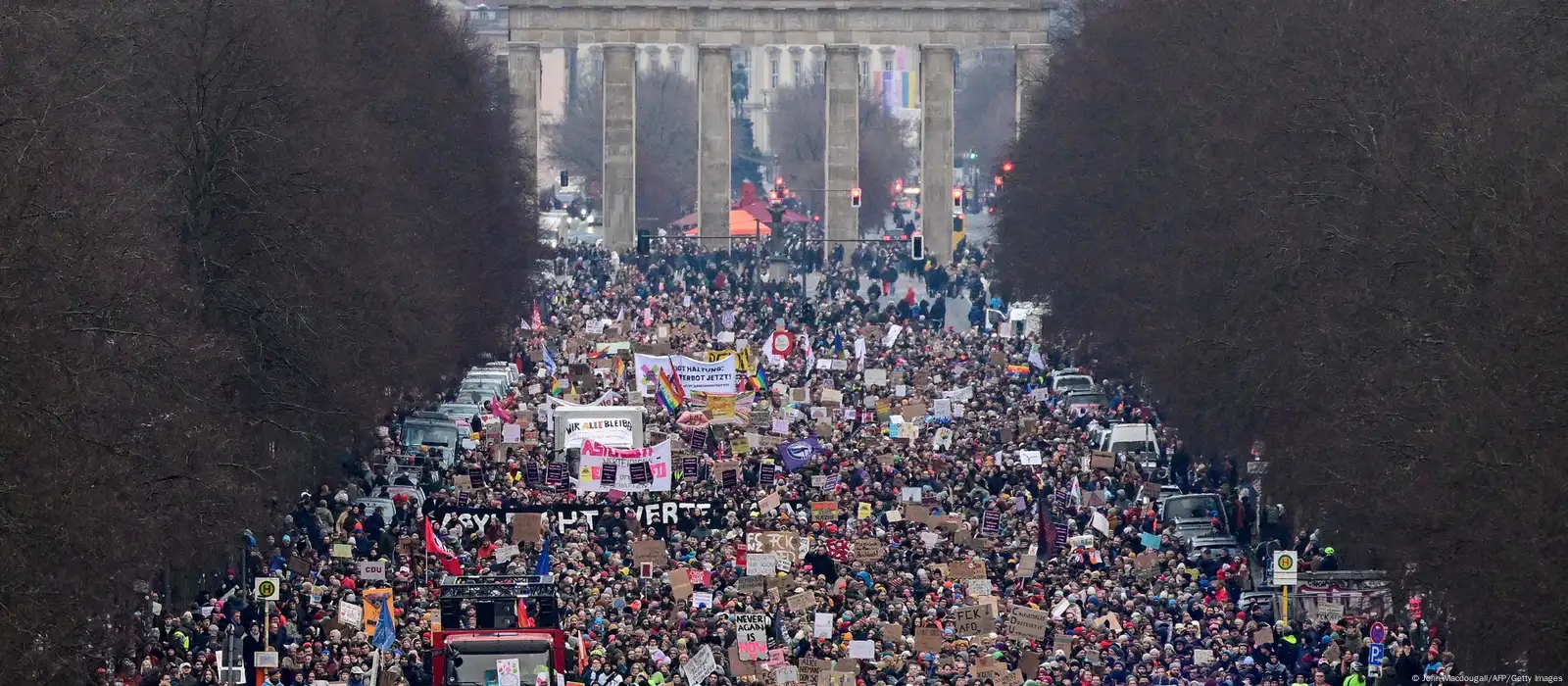
Political revolutions in European history are multifaceted and driven by various factors, from the Warsaw Uprising to the current rise of right-wing populism, which will shape my generation's future. It is evident that in the past decennium numerous (extreme) right political movements have emerged. It is no longer deniable; the right in Europe is awake and stronger than ever.
By Farid Shukurlu
A good starting point is 2016, with Donald Trump's election and Nigel Farage’s Brexit victory, which he depicted as an independence movement for the United Kingdom. As of that moment, right-wing parties all over Europe saw a significant increase in their support. The most recent one was the victory of Germany's AfD, with as much as 38 per cent of the votes in their Eastern regions.
The rise of the right is a thorn in the eye of the radical left, which often uses the judiciary to silence its right-wing opponents. Like was the case with Marine Le Pen, who remains influential but faces a ban from the 2027 presidential race due to a conviction. This tactic undermines democratic fairness and stifles political competition.
To see the obvious, it is good to look at different cases from all over the globe. One reason rights are on the rise is years of poor economic performance of the left, as exemplified by the case of Argentina’s Javier Milei, an ultra-libertarian economist.
After decades of economic uncertainty and skyrocketing inflation rates, the Argentinian people elected Milei, known for his opposition to public health measures during the COVID-19 pandemic and his promises to slash state spending and address economic crises.
His small-government model saw the closure of dozens of ministries and reduced the budget of the government agencies. Economic scholars argue that Milei’s presidency represents an unprecedented shift from traditionally progressive Argentine politics to new right-wing policies emboldened by Javier Milei’s financial trends.
As an outsider to Argentinian politics, his political personality has been widely compared to Donald Trump’s due to their anti-establishment stance. Hosting the Conservative Political Action Conference (CPAC) in Argentina underscores Milei's influence in global right-wing politics, attracting figures like Trump and other right-wingers like Orban, Wilders, Farage, Weidel, and Ventura.
The Dutch case is an exceptional example of a man who stood up to the entire system. Geert Wilders’ success is not measurable by any metrics. He dared to speak his mind on unpopular opinions ranging from demographic problems to the bureaucracy of the EU.
No one could have anticipated that Wilders' Party for Freedom (PVV) would be the largest in the Netherlands' parliament. This party is the only political institution that questions critical issues such as the country’s asylum policies and the debate on dual citizenship. Its success significantly challenges the Dutch constitutional order and democratic principles. However, it is also an opportunity to call for unity.
The Dutch have had enough uncontrolled immigration and Mark Rutte's scandals. Rutte's most significant weapon was surviving political confrontations despite all odds. Wilders is the living embodiment of a man whose principles are not for sale.
From migration to the support of farmers, he is a man hated by the elites and loved by ordinary Dutch people. Bravery is said to be his unique trait. Unfortunately, he has been under police protection since the early 2000s because of some comments he made about Islam. It breaches the principles of “freedom of speech and thought” and poses a danger to the Western values that promote the virtues of questioning everything controversial.
The political revival of Donald Trump and right-wing populism is deeply tied to concerns over migration, inflation, and cultural backlash against “woke” policies. Trump’s “America First” doctrine resonated with millions frustrated by economic instability and perceived threats to national identity.
The Biden-Harris administration’s failure to secure another term can be partly explained by public dissatisfaction with the war in Ukraine, which has cost the US over half a trillion dollars in aid and reconstruction efforts, soaring inflation, and a culture war many see as divisive. While President Biden’s Ukraine policy has alienated some Eastern European allies, he has threatened further sanctions on Russia if demands are unmet.
Meanwhile, the left’s repeated legal attempts to imprison Trump are viewed by his supporters as politically motivated efforts to silence a popular nationalist voice. Trump’s comeback symbolises a rare political phenomenon reflecting urgent demands for change in U.S. politics.
The popularity of Germany’s far-right Alternative für Deutschland (AfD) raised a lot of awareness for a country with a sensitive spot for this matter. The recent election saw the unstoppable success of AfD, which secured the same number of seats in the Bundestag. Their manifesto is shaking the health of German democracy, drawing comparisons to historical periods of political instability.
Many have blamed the centre-right Christian Democratic Union of Germany (CDU) for the rise of AfD. They are the party that neglected the need for reforms to stop illegal migration and the energy crisis caused by Merkel’s policies, which she said she has no regrets about.
Several factors contribute to the rapid surge of right-wing political movements in the West. The populist appeal is embedded in most societies, which feel ignored by mainstream politics. If the likes of CDU and others fail to meet the public's demands, the far right will continue to disturb the political order.
Economic reasons also make the cornerstone of this rise based on the examples from the USA and Argentina, where rising living costs and inflation have fostered a fertile ground for right-wing movements to gain momentum. Milei and Trump offer an alternative to the traditional solution to complex issues.
The Reform UK’s reflection on the British electorate is not just a shambolic fact for the Tories and Labour but also a reflection of the purple revolution shaking the political landscape of one of Europe’s most substantial democratic models. As of today, Reform is the leading party at the polls.
Great leaders of the West, like Churchill, made rational decisions, opposing any rhetoric of the extreme right. However, the current state of British and European politics underestimates the willingness of ordinary citizens to have a different future.
The rise of right-wing movements in the Netherlands, the US, Germany, the UK, and Argentina reflects a broader global trend driven by populism, economic grievances, and strategic political manoeuvring. Understanding these forces is crucial to addressing their implications for democracy and international stability.
The left has increasingly weaponised the judiciary as a tool to silence right-wing and nationalist voices that challenge their agenda. High-profile cases, such as Marine Le Pen’s exclusion from the French presidential race, illustrate how legal proceedings are used not to uphold justice, but to politically marginalise opponents. This tactic, often referred to as “lawfare,” transforms the judiciary from an impartial institution into a weaponised instrument of political suppression.
By targeting right-wing leaders through legal means, the left undermines democratic principles, threatening to reduce political competition to a mere façade and eroding the foundation of true democracy that is representative of a variety of public opinions.







This article is a summary of political issues well worth the time taken to read it.